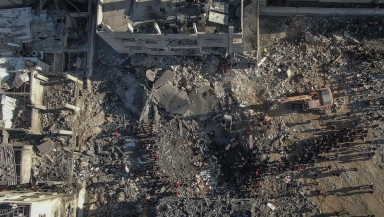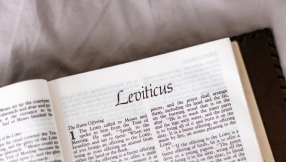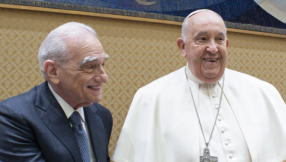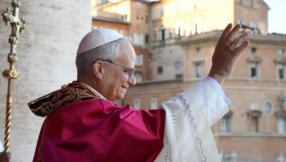
Cardinal Fernando Filoni, the grand master of the Equestrian Order of the Holy Sepulchre, stressed that there can be no peace in the Holy Land unless there is justice and the understanding that both sides, Israel and Palestine, have a right to exist.
The cardinal spoke on Thursday to Vatican journalists, where he discussed the work that his order financially supports in the Holy Land.
The Equestrian Order of the Holy Sepulchre was founded by Pope Pius IX in 1898 with the role of funding and sustaining the Christian community in the Holy Land. Its roughly 30,000 members, knights and dames, are not only bestowed with an honorary title but they are also required to make financial contributions to the Latin Patriarchate of Jerusalem.
Filoni underlined that no solution will work, be it one state or two states, unless justice is guaranteed for both sides involved in the war.
"There can be no peace without justice. An unjust peace could create new wars, injustices and violence," he said. Addressing the origins of the conflict, the cardinal said that "when a people feels to have suffered an injustice or doesn't feel heard, hate grows and can become violent."
"We have to start by saying that one can't deny Palestinians their right to exist, just as you can't deny Israel its right to exist," Filoni said.
The cardinal added that the Israeli invasion in Gaza was "illegal" and "violent."
Filoni made clear that the order is not involved in the politics of the Holy Land and "is not an architect of peace." While the knights and dames might not directly interfere with peace and diplomacy, he said, "we can be workers."
The charities funded by the order mostly help Christian families in the Holy Land, which currently make up only 2% of the population. But its schools and hospitals are open to all, Filoni said, which create a framework for peaceful coexistence.
"If we are able to prove that peace is possible, then it can be applied to all in the Holy Land," he said. "Just because we don't talk about coexistence, it doesn't mean it does not exist. The future of this land is peaceful coexistence, which is still possible, but we have to build it," he added.
© Religion News Service













